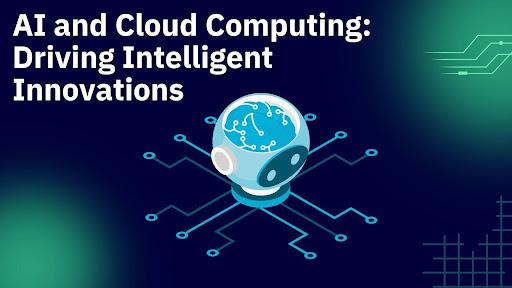AI and Cloud Computing: Driving Intelligent Innovations
In today’s world, Artificial Intelligence (AI) and Cloud Computing are transforming the technology landscape. Karthikeyan Anbalagan highlights how their convergence is redefining cloud services, driving advancements in resource management, automated scaling, and security, while significantly enhancing the efficiency of cloud operations. This powerful combination is shaping the future of computing, offering innovative solutions that meet the evolving needs of businesses and industries.
Revolutionizing Resource Optimization
Integrating AI into cloud computing is transforming resource optimization, making cloud environments more intelligent and efficient. Unlike traditional approaches based on static rules, AI introduces predictive analytics and real-time data analysis. AI-powered systems dynamically analyze historical and current data, predicting demand and adjusting resources accordingly, ensuring efficient load balancing and maximizing resource utilization. AI’s predictive capabilities also enable proactive scaling to handle traffic spikes, while AI-driven energy management optimizes cooling and power usage, significantly reducing data center energy consumption and promoting sustainability efforts.
Automated Scaling for Enhanced Performance
AI-powered automated scaling is a significant advancement in cloud environments, surpassing traditional static rule-based methods. AI systems anticipate workload fluctuations and automatically adjust resources, optimizing performance and reducing costs. Machine learning continuously learns from past usage, refining scaling decisions over time. This adaptive approach allows cloud services to manage complex scenarios, such as varying demand for computing power, storage, or memory, without manual intervention, ensuring a seamless user experience even during peak usage periods.
Strengthening Security with AI-Driven Solutions
AI significantly enhances cloud security, going beyond traditional threat detection. AI-powered systems continuously monitor network traffic and user behavior to detect anomalies, identify threats in real-time, and automatically respond to incidents. These systems analyze vast amounts of global threat data, offering proactive threat intelligence that keeps cloud services ahead of emerging risks. By reducing false positives, AI-driven security solutions lighten the workload on security teams, enabling them to focus on more critical tasks.
Intelligent Data Management: Organizing the Cloud
AI enhances cloud computing by enabling intelligent data management, streamlining the handling of large datasets, and boosting data quality. Automated data classification and tagging improve organization and retrieval, while AI-driven compression optimizes storage, cutting costs without sacrificing data integrity. Additionally, AI excels in smart data tiering, automatically moving data between storage tiers based on usage. This ensures frequently accessed data is readily available, while less critical data is stored cost-effectively, enhancing efficiency.
Automating Operations for Efficiency Gains
AI automates cloud operations, from deployment to troubleshooting, using intelligent monitoring systems that detect and resolve issues in real-time without human intervention. This minimizes downtime and allows IT teams to focus on strategic tasks. Automated deployment optimizes resource allocation based on past performance, while AI-powered self-healing systems boost cloud reliability by addressing common issues automatically, reducing disruptions and enhancing overall service stability.
Overcoming Challenges with AI Integration
Integrating AI into cloud environments brings challenges, especially in data privacy and security, as AI systems need access to extensive datasets. Robust encryption and compliance frameworks are essential for protecting sensitive information. Cost management is also crucial due to high computational and storage expenses. Using serverless architectures, spot instances, and model optimization can help reduce costs while sustaining performance levels.
The Path Forward: AI’s Evolving Role in Cloud Computing
The convergence of AI and cloud computing is transforming technology, unlocking new opportunities for innovation and efficiency. As they evolve, trends like edge computing, federated learning, and AI-driven DevOps promise to revolutionize the field, enhancing real-time decision-making, software development, and data privacy.
In conclusion, Karthikeyan Anbalagan‘s insights emphasize that AI-powered cloud computing is poised to become an essential tool for businesses, driving digital transformation and opening up new possibilities in the ever-evolving technological landscape. This convergence promises to shape the future of innovation and efficiency.


Comments are closed.